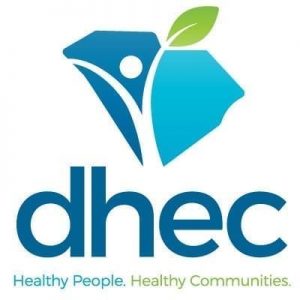South Carolina firefighters deliver 200 opioid antidotes in effort to prevent overdoses and save lives
October 27, 2020Firefighters administering opioid overdose antidotes are having a significant impact in the battle against opioid overdose deaths in South Carolina, reaching a milestone number of 200 naloxone administrations for suspected overdoses this year as of Oct. 21.
The Reducing Opioid Loss of Life (ROLL) program is voluntary and trains any fire department to administer the opioid antidote naloxone, including departments not staffed with emergency medical technicians. ROLL is administered by the South Carolina Department of Health and Environmental Control (DHEC) Bureau of Emergency Medical Services and currently includes more than 1,700 firefighters in 113 units across the state.
South Carolina piloted this program in 2017 to address the growing number of opioid overdoses and deaths, leading to five naloxone administrations in 2018 and 72 in 2019 as ROLL participation grew.
“The expansion of ROLL this year couldn’t have come at a more important time, allowing more first responder fire departments to respond to significant increases in suspected overdoses since the beginning of the COVID-19 pandemic,” said Arnold Alier, director of DHEC’s Emergency Medical Services. “As more departments have come on board in our state, often in rural areas or counties where EMS resources are already stretched thin, they have become key players in the fight to save lives in the opioid crisis.”
Since the beginning of the COVID-19 pandemic, South Carolina has seen a 49 percent elevation in suspected opioid overdoses and first responder naloxone administrations over the same time frame in 2019 last year.
“The ability to have this drug on our apparatus has made a tremendous impact in our community. Since the beginning of 2020 the Lexington County Fire Service has utilized NARCAN 53 times,” said Fire Chief Mark Davis, Lexington County Fire Service. “The Fire Service is extremely grateful for our partnership with DHEC and Lexington County Emergency Medical Services. Access to the ROLL program, from DHEC and the training, guidance and support from Lexington County EMS, have allowed the fire service to deliver a lifesaving treatment across our county.”
The Lexington County Fire Service has been delivering the lifesaving drug naloxone since August 2019.
According to the 2019 Drug Overdose Deaths report released last week by DHEC in cooperation with the South Carolina Department of Alcohol and Other Drug Abuse Services, from 2018 to 2019, the total number of opioid-involved overdose deaths in South Carolina increased by 7 percent, from 816 to 876. The total number of all drug overdoses increased by 3 percent across the state, from 1,103 to 1,131. A map-based, county-level data dashboard with 2019 overdose information is located at justplainkillers.com/data.
ROLL is complementary to the Law Enforcement Officer Naloxone (LEON) program established in 2015 and provides an additional way for first responders to help protect the citizens of South Carolina from opioid overdoses. The LEON program has trained and equipped more than 10,000 police officers in 228 organizations across the state, leading to the administration of opioid antidotes 610 times this year as of Oct. 8, a 28 percent increase over this time in 2019.
DHEC encourages LEON and ROLL participation by agencies in all jurisdictions, large and small. The training includes:
- Signs and symptoms of overdose
- How opioids affect the body
- How Narcan® works
- The Overdose Prevention Act
- Best practices for first responder safety
The opioid antidote naloxone, when administered in time, can reverse the effects of overdose from drugs including prescription opioids (oxycodone, hydrocodone, morphine and others), heroin and fentanyl. First responders typically administer naloxone as a nasal spray; it has no psychoactive effects and presents no harm when administered to someone not experiencing an opioid overdose. For more information visit naloxonesavessc.org.














